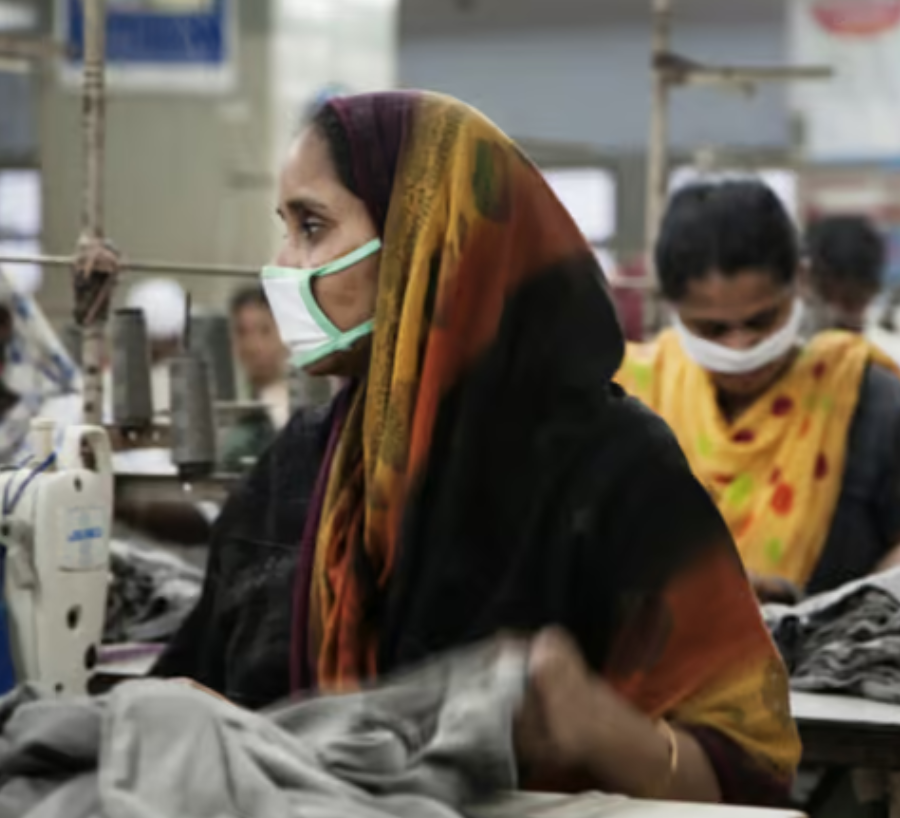
Bangladesh’s 3,500 garment factories account for around 85% of its $55 billion in annual exports, and supply many of the world’s leading brands, such as Levi’s, Zara (Inditex Group) and H&M.But conditions are dire for many of the four million people working in the sector, the vast majority of whom are women earning a starting monthly salary of 8,300 taka ($75).Textile workers in this poor South Asian country have been protesting for the past two weeks, demanding a near tripling of the sector’s minimum monthly wage.On Tuesday, a state-appointed committee announced a 56.25% pay rise for textile workers, to 12,500 takas (106 euros) per month, an offer immediately rejected by the unions.The unions are demanding a minimum of 23,000 takas (195 euros) per month to enable workers to cope with galloping inflation. Washington urged the authorities on Wednesday to “review the minimum wage decision, to ensure that they respond to the growing economic pressures facing workers and their families”, said State Department spokesman Matthew Miller.Anjuara Khatun, a 23-year-old sewing machine operator and mother of two, was “shot in the head” on Wednesday and died, the victim’s husband, Mohammad Jamal, told AFP. Police had opened fire on demonstrators in the industrial town of Gazipur, near the capital Dhaka.Washington said it was “concerned about the ongoing repression of workers and trade unionists”, calling on Dhaka to “protect the right of workers to demonstrate peacefully”.Police reported that fresh violence had broken out in Gazipur on Wednesday after a demonstration by nearly 4,000 people protesting against the offer of a pay rise deemed too low.Thousands more blocked a highway, where at least five policemen were injured, two of them seriously, a police officer told AFP on condition of anonymity.
“Backs to the wall Netherlands-based Clean Clothes Campaign, a textile workers’ rights group, called the proposed new minimum wage a “poverty wage”.”The new minimum wage condemns workers to a struggle for survival for the next five years,” the group said in a statement. Many brands sourcing clothing from Bangladesh have long promised to guarantee a living wage, but “they have failed to act, illustrating (all) the emptiness of their commitments”. “I’m a widow with two children. I earn around 13,000 taka, including overtime. How can I survive on such little income? My back is against the wall,” says Shahnaj Akter, a textile worker. These wage protests represent a major challenge for Prime Minister Sheikh Hasina, who has ruled the country with an iron fist since 2009. The opposition is challenging her power as she prepares for elections due before the end of January. Security has been stepped up in the main industrial cities outside Dhaka after trade unions threatened further protests. Around 600 factories making clothes for many major Western brands had been closed last week, and dozens were ransacked in the biggest wage demonstration in a decade, according to police. Four factories were also torched and at least two workers were killed in the violence, with tens of thousands of workers blocking highways and attacking factories (AFP).
Read more – Fashion United
